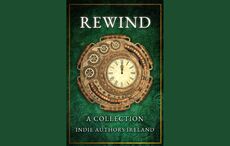| During tough times in Ireland education is key |
For young people in their twenties, there’s an overriding sense that the life we’re living wasn’t in the script. When people of my age went to college just as the century turned, Ireland was reveling in a Gilded Age where it seemed opportunity and prospects and hope were going to be plentiful for ever more. Emigration was something you saw referenced on Reeling In The Years, and foreign travel didn’t have the specter of necessity about it. For those in their teens they face a situation where, through no fault of their own, their chance of enduring employment at home after third level education is starkly diminished. That is assuming they’re able to afford third level education in the first place.
It’s not that young people want or feel entitled to instant success, far from it. Success is something you should work hard and strive for, but it should feel within reach eventually. It should be difficult to get your big break, it shouldn’t be impenetrable. Chasing dead ends and living with disappointment is just part of everyday life for this generation.
But even despite our current difficulties, resilience and positivity will always shine through. For President Higgins’ upcoming Being Young & Irish seminar young people are making suggestions on how to make Ireland’s future better, on a wide range of topics. For me, with such challenges for young people finding their way in the world, and the best way to use their skills, my main priority is education.
If Ireland is to advance in the future, it needs to seriously overhaul what we teach and how it’s taught. 100 years since Pearse blasted the murder machine, it’s still fully functioning. The Leaving Cert, the results of which had thousands of students nationwide up to high dough this week, is a pathetically inefficient method of measuring achievement, value or talent. In a world of high speed bullet trains, the Leaving Cert is a pony and trap. But mild-mannered reform of the Leaving Cert won’t be worth a hill of beans unless the lead up to it is also drastically overhauled.
In my experience, every ten year old I’ve ever known has possessed an encyclopaedic knowledge of something. Sometimes it’s football, music, a particular TV show or film or something more academic like history or geography or dinosaurs, but I’ve never met a 10 year old who can’t rattle off knowledge about their interests at the drop of a hat. By secondary school, that instinct to learn what interests you is blunted. In focusing such rigor on exam preparation, the whole education system funnels people into a format which seriously undermines creativity, independent thinking, open discussion and deeper exploration. Knowledge, such as it is, is crammed into the short stay car park of our minds for the purpose of splurging it on as many pages as you can as quickly as you can. You literally have no time to think, and there’s our problem.
Now more than ever, Ireland needs people of skill, talent and imagination to speak up and share the ideas that will shape and influence the way we think, act and work well into the future. We owe it to ourselves and to generations ahead to build an education system that helps encourage that, and all the incredible things borne of such a system. Ours is a generation that faces disappointment regularly, but we have to use that disappointment to strive to do better for ourselves and the young people that come after us. Ireland needs to learn from it’s mistakes, and then become a better teacher.




Comments